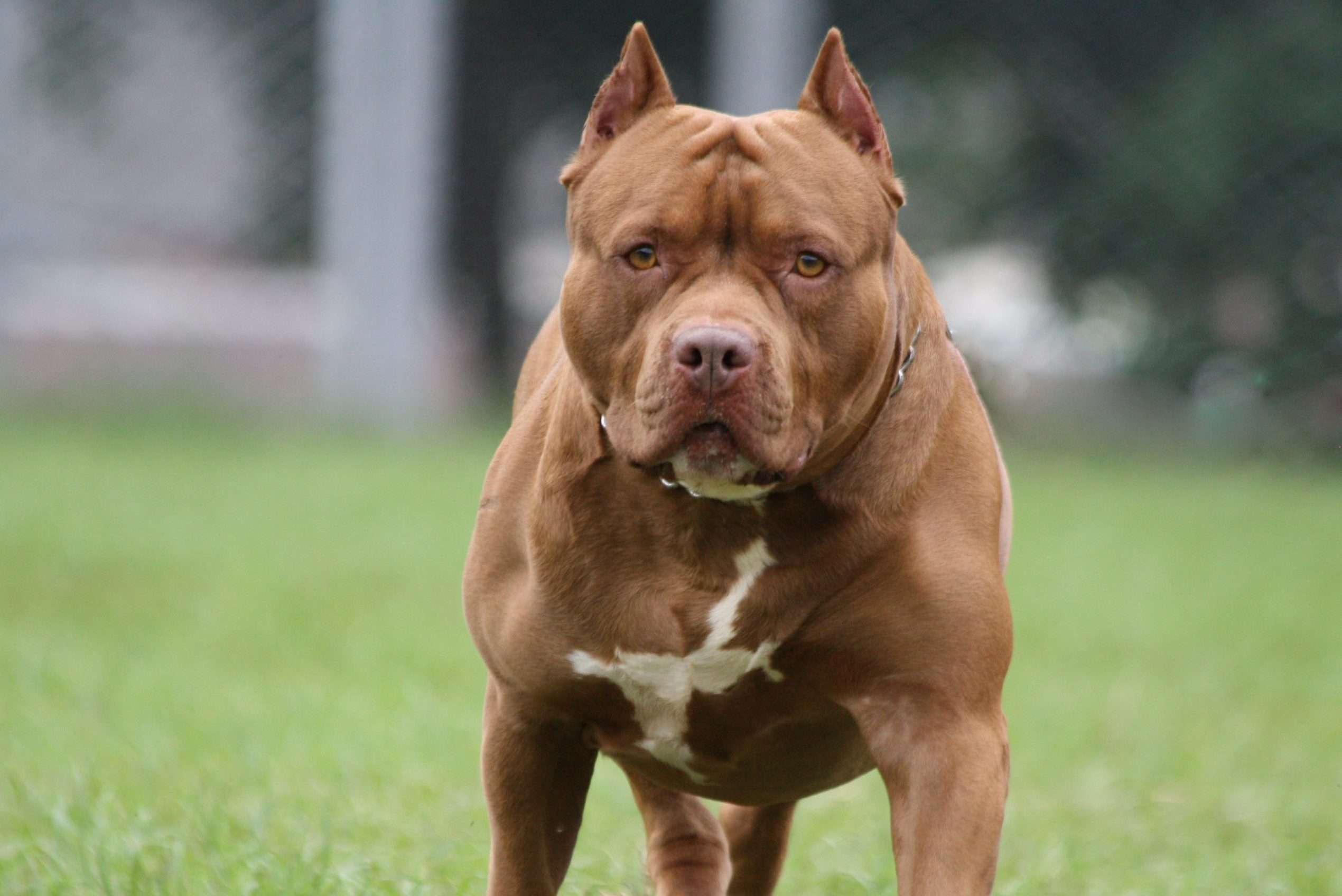Key Takeaways:
- Avocado can be toxic to dogs due to the presence of persin, a substance that can cause vomiting and diarrhea.
- The pit and skin of avocados pose a choking hazard for dogs and should be avoided.
- Feeding small amounts of ripe avocado flesh in moderation is generally safe for dogs, but it is not recommended as a regular part of their diet.
- Some dogs may be more sensitive to avocado than others, so it's important to monitor their reaction after consuming it for the first time.
- If you suspect your dog has ingested a large amount of avocado or is showing signs of illness after consuming it, seek veterinary assistance immediately.
Are you a dog owner who loves to share your snacks with your furry friend? If so, you might be wondering if it's safe for dogs to eat avocados. Well, you're in the right place! Understanding whether dogs can eat avocado is essential for keeping your pup healthy and happy. In this article, we'll delve into this intriguing topic and uncover the truth behind avocados and our canine companions. So, grab a seat and get ready to discover whether avocados are a treat or a no-no for your four-legged friend.
What is Avocado and Why is it Popular in Many Dishes?
Avocado is a fruit that is known for its creamy texture and rich flavor. It is commonly used in many dishes, such as salads, sandwiches, and guacamole. The popularity of avocado can be attributed to its versatility and nutritional benefits.
Avocados are packed with healthy fats, fiber, vitamins, and minerals. They are a good source of monounsaturated fats, which are considered heart-healthy fats that can help lower bad cholesterol levels. Avocados also contain vitamins C, E, K, and B-6, as well as folate and potassium.
Benefits of Avocado in Dishes:
- Enhances flavor: Avocado adds a creamy and buttery taste to dishes.
- Nutritional value: Avocados provide essential nutrients like healthy fats, vitamins, and minerals.
- Dietary fiber: Avocados are a good source of fiber that aids digestion.
- Versatility: Avocado can be used in various recipes - from salads to smoothies.
Fun Fact:
The word "avocado" comes from the Aztec word "ahuacatl," which means testicle. This is because the shape of an avocado resembles a certain part of the male anatomy!
Are Avocados Safe for Dogs to Eat or Can They be Harmful?
If you have a furry friend at home, you may wonder if avocados are safe for dogs to eat. While avocados offer health benefits for humans, they can pose risks to our canine companions. It's important to understand why avocados might not be suitable for dogs.
The main concern with avocados and dogs is a substance called persin. Persin is found in all parts of the avocado, including the fruit, pit, leaves, and bark. While persin is generally harmless to humans, it can be toxic to some animals, including dogs.
Potential Risks and Dangers of Feeding Avocados to Dogs:
- Gastrointestinal upset: Eating avocado may cause stomach discomfort, vomiting, or diarrhea in dogs.
- Obstruction or choking hazard: The large pit of an avocado can pose a risk if swallowed by a dog.
- Persin toxicity: In certain cases, persin can lead to breathing difficulties or heart problems in dogs.
Can Dogs Get Health Benefits from Eating Avocados or Should They Avoid Them?
While avocados offer health benefits for humans, it is best to avoid feeding them to your furry friends. Dogs have different digestive systems than humans and may not process avocados as well. Additionally, the potential risks associated with avocados outweigh any potential health benefits for dogs.
Safe Parts of Avocado for Dogs to Consume or Should They Avoid It Entirely?
To ensure your dog's safety, it's best to avoid feeding them any part of an avocado. This includes the fruit flesh, skin, pit, leaves, and bark. While small amounts of avocado flesh may not harm all dogs, it's better to err on the side of caution and choose alternative treats that are specifically safe for canine consumption.
Note:
If you suspect that your dog has consumed avocado or is experiencing any symptoms after ingestion, it's essential to consult your veterinarian for guidance.
Signs that Your Dog May Have Eaten Avocado and Could be Experiencing Negative Effects
If your dog has accidentally eaten avocado or any part of it, there are signs to watch out for that may indicate they are experiencing negative effects. Keep an eye on your furry friend for the following symptoms:
- Vomiting or diarrhea
- Lethargy or weakness
- Difficulty breathing
- Abdominal discomfort or bloating
- Irregular heart rate
If you notice any of these symptoms, it's crucial to seek veterinary attention promptly. Early intervention can help prevent further complications and ensure your dog receives appropriate care.
Steps to Ensure Your Pet's Safety if a Dog Accidentally Eats Avocado
If you discover that your dog has consumed avocado, it's important to take the necessary steps to ensure their safety. Follow these guidelines:
- Contact your veterinarian: Inform your vet about the situation and provide details on how much avocado your dog has ingested.
- Monitor your dog: Keep a close eye on their behavior and note any abnormal symptoms or changes in health.
- Do not induce vomiting: Unless instructed by a veterinarian, do not try to induce vomiting in your dog as it may cause additional harm.
- Follow professional advice: Your vet will guide you on the next steps based on your dog's condition, which may include observation, supportive care, or further treatment if necessary.
Remember, prevention is always better than cure when it comes to our pets' well-being. Keeping avocados and other potentially harmful foods out of your dog's reach is the best way to ensure their safety.
Signs that Your Dog May Have Eaten Avocado and Could be Experiencing Negative Effects
1. Gastrointestinal Distress
If your dog has consumed avocado, you may notice signs of gastrointestinal distress. This can include vomiting, diarrhea, or an upset stomach. Avocado contains a substance called persin, which can be toxic to dogs in large amounts. These symptoms may indicate that your dog's body is reacting negatively to the avocado.
2. Difficulty Breathing
In some cases, dogs who have ingested avocado may experience difficulty breathing. This could be due to an allergic reaction or a blockage in the airway caused by swallowing a large piece of avocado pit or skin. If you notice your dog struggling to breathe after consuming avocado, it is important to seek immediate veterinary attention.
3. Lethargy and Weakness
Another sign that your dog may be experiencing negative effects from eating avocado is lethargy and weakness. Avocado contains high levels of fat, which can lead to pancreatitis in dogs if consumed in excess. Pancreatitis can cause symptoms such as fatigue, lack of energy, and overall weakness.
In summary, if your dog has eaten avocado, watch out for signs of gastrointestinal distress like vomiting and diarrhea, difficulty breathing, and lethargy/weakness.
Steps to Ensure Your Pet's Safety if a Dog Accidentally Eats Avocado
1. Contact Your Veterinarian
The first step to ensuring your pet's safety if they have accidentally eaten avocado is to contact your veterinarian immediately. They will be able to provide guidance based on the specific situation and advise on any necessary actions or treatments.
2. Monitor Your Dog's Symptoms
While waiting for veterinary advice, it is important to closely monitor your dog's symptoms. Keep an eye out for any changes in behavior, appetite, or physical condition. Take note of any vomiting, diarrhea, or difficulty breathing. This information will be helpful when discussing the situation with your veterinarian.
3. Prevent Future Incidents
To prevent future incidents of accidental avocado consumption, it is crucial to keep avocados and avocado-containing products out of your dog's reach. Store them securely in cabinets or high shelves where your dog cannot access them. Additionally, educate family members and visitors about the potential dangers of avocados for dogs.
In conclusion, if your dog accidentally eats avocado, contact your veterinarian immediately, monitor their symptoms closely, and take steps to prevent future incidents.
In conclusion, dogs should not eat avocado. Avocado contains a substance called persin that can be toxic to dogs and cause digestive problems. It's best to keep avocados away from our furry friends to keep them safe and healthy.
What happens if my dog eats avocado?
If dogs consume excessive amounts of avocado, it can cause digestive problems and pancreatitis due to the high fat content. Additionally, avocados are calorie-dense and can contribute to weight gain. Another potential issue is the stone in the middle of the fruit, which can pose a choking hazard for dogs.
How much avocado can I give my dog?
To prevent any potential harm to your dog, it is recommended to only feed them small portions of avocado. Just two or three small pieces are sufficient as a delicious treat without putting their health at risk. It is important to cut the avocado into small, easily manageable pieces to avoid any choking hazards for your dog.
Is avocado toxic to dogs or cats?
Due to its high fat content, dogs and cats can potentially develop pancreatitis (inflammation of the pancreas) if they consume avocado. Therefore, it is recommended to restrict their access to only small quantities of the fruit.
Will half an avocado hurt my dog?
It's a challenging question, but it is recommended not to give your dog avocado as it contains a toxin called Persin. Avocado can cause severe health problems and even death in larger animals like cows and horses, so it's better to be cautious.
What happens if a dog eats a little guacamole?
If your dog accidentally consumes guacamole, it is crucial to seek immediate veterinary care. Do not delay and contact the nearest emergency clinic as soon as possible. Even a small quantity of guacamole can be harmful to your dog, especially if they are small, due to the presence of toxic ingredients.
Can dogs eat avocado and banana?
Consuming avocado may cause slight stomach discomfort, but the most significant concern is the pit. If the pit is consumed whole, it can result in a serious blockage. If your pet ingests a pit, it is important to contact your veterinarian right away. However, bananas are safe and can be included in your diet.

















